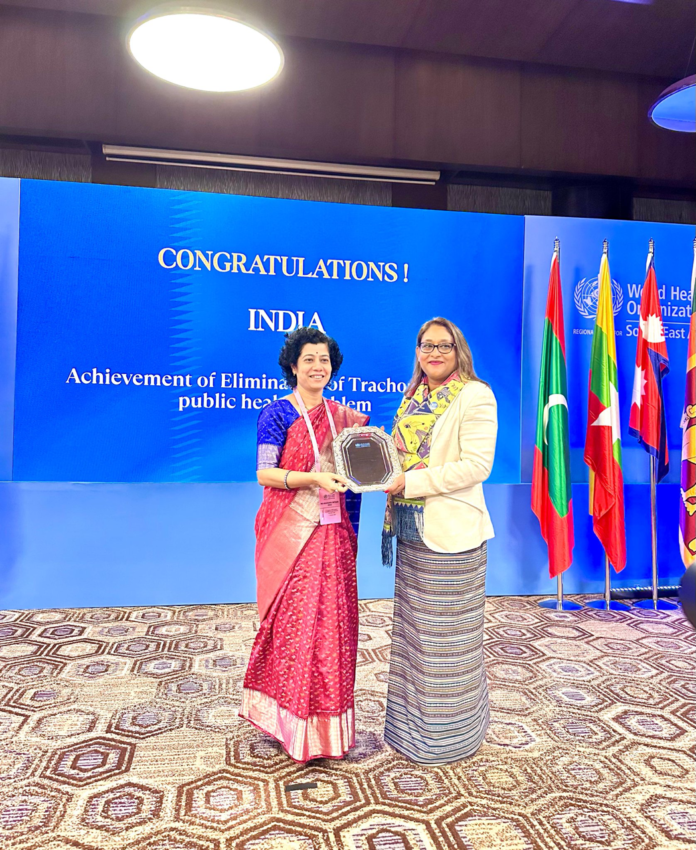Trachoma is a bacterial infection that affects the eyes, spreading through contact with the eyes, eyelids, nose or throat secretions of infected people
India has become the third country in Southeast Asia to eliminate trachoma as a public health problem.
Trachoma which is classified as a neglected tropical disease, is a bacterial infection that affects the eyes. It is caused by the bacterium Chlamydia Trachomatis. Trachoma is contagious, spreading through contact with the eyes, eyelids, nose or throat secretions of infected people, if left untreated it causes irreversible blindness.
The disease was amongst the leading cause of blindness in the country during 1950-60. In 1971, blindness due to Trachoma was 5% and today, owing to the various interventions under the National Programme for Control of Blindness & Visual Impairment (NPCBVI), it has come down to less than 1%. WHO SAFE strategy was implemented throughout the country wherein SAFE stands for adoption of surgery, antibiotics, facial hygiene, environmental cleanliness etc. As a result, in 2017, India was declared free from infective Trachoma. However, surveillance continued for trachoma cases in all the districts of India from 2019 onwards till 2024.
The National Trachomatous Trichiasis (TT only) Survey was also carried out in 200 endemic districts of the country under NPCBVI from 2021-24, which was a mandate set by WHO in order to declare that India has eliminated Trachoma as a public health problem.
All the reports were compiled in a specific dossier format by the NPCBVI team and were shared with the WHO country office for final scrutiny. Finally, after years of fighting against Trachoma, WHO declared that India has eliminated Trachoma as a public health problem.


